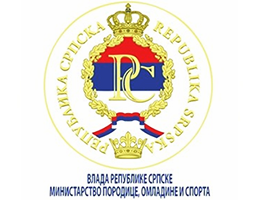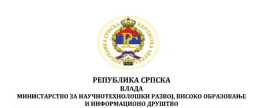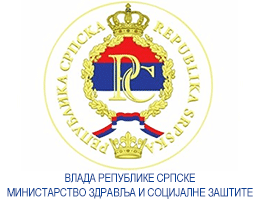ELEVATING USER EXPERIENCE AND SERVICE EXCELLENCE IN SPORTS FACILITIES VIA INTEGRATED MANAGEMENT INFORMATION SYSTEMS: A SYSTEMATIC REVIEW
Volume 15, Issue V (2025)
Volume 15, Issue V (2025)
ELEVATING USER EXPERIENCE AND SERVICE EXCELLENCE IN SPORTS FACILITIES VIA INTEGRATED MANAGEMENT INFORMATION SYSTEMS: A SYSTEMATIC REVIEW
Apstrakt:
With the growing public interest in sports, sports facility management is facing increasing demands to im- prove the quality of its services and enhance the user experience. To address these challenges, this paper comprehensively discusses the development of an integrated management information system (MIS). This discussion is based on existing literature and aims to contribute to the advancement of sports facility management. This study investigates the develop- ment of an Integrated Management Information System (IMIS) to improve user experience and service quality in sports facilities. Employing a systematic review (2018-2023) of 7 articles from Scopus, Google Scholar, and Semantic Scholar, the research explores how IMIS can address evolving industry needs. The system facilitates user access to information, online transactions, and feedback mechanisms, while enabling personalization and recommendations. Implementation involves evaluating facility needs, staff training, and user introduction. Data security and privacy are crucial. Future integration of AI, IoT, and mobile applications holds promise for further enhancing IMIS effectiveness. Overall, IMIS implementation has demonstrably improved user experience and service quality. By prioritizing user experience and adapting to technological advancements, sports facilities can remain competitive in a digital age.
Ključne riječi:
Management Information System, user experience, service quality, sports facilities.
Puni tekst:
Reference:
Alkhateeb, S. et al. (2019) ‘Pattern of physical exercise practice among university students in the Kingdom of Saudi Arabia (before beginning and during college): a cross-sectional study’, BMC Public Health, 19.
Fiaz, M., Ikram, A. and Ilyas, A. (2018) ‘Enterprise resource planning systems: Digitization of healthcare service quality’, Administrative Sci- ences, 8(3). doi: 10.3390/admsci8030038.
García-Pascual, F. et al. (2021) ‘Models of Sports Management in Fitness Centres . Influence of Sex , Age and Sport Frequency . Linear Models vs . Qualitative Comparative Analysis’, Sustainability, 13. doi: https:// doi.org/10.3390/su13168995.
Hermanto, A. and Supangat (2018) ‘Integration of EA and IT service to improve performance at higher education organizations’, MATEC Web of Conferences, 154, pp. 8–11. doi: 10.1051/matecconf/201815403008.
Kurniawan, B. (2018) ‘Integrated Information System for Radio Frequency Identification Based Administration and Academic Activities on Higher Education’, IOP Conference Series: Materials Science and Engineering, 407(1). doi: 10.1088/1757-899X/407/1/012097.
Masri, N. W. et al. (2020) ‘Assessing the effects of information system quality and relationship quality on continuance intention in e-tourism’,
International Journal of Environmental Research and Public Health, 17(1). doi: 10.3390/ijerph17010174.
Ndayisenga, J. and Tomoliyus (2019) ‘Effect of service quality and rates on satisfaction and loyalty of customer behavior at fitness’, Interna- tional Journal of Human Movement and Sports Sciences, 7(2), pp. 25–32. doi: 10.13189/saj.2019.070202.
Puspitasari, N. et al. (2019) ‘An application of the UTAUT model for analysis of adoption of integrated license service information system’,
Procedia Computer Science, 161, pp. 57–65. doi: 10.1016/j.procs.2019.11.099.
Shan, J. and Han, B. (2021) ‘Analysis and Design of College Sports Information System Based on Network’, 2021 4th International Confer- ence on Information Systems and Computer Aided Education.
Talapatra, S., Uddin, M. K. and Rahman, M. H. (2018) ‘Development of an Implementation Framework for Integrated Management System Based on the Philosophy of Total Quality Management’, American Journal of Industrial and Business Management, 08(06), pp. 1507–1516. doi: 10.4236/ajibm.2018.86101.
Trunina, I. et al. (2018) ‘Introducing ERP System as a Condition of Information Security and Accounting System Transformation’, Interna- tional Journal of Engineering & Technology, 7(3).
Vitliemov, P. (2019) ‘Features in management and monitoring of production process in manufacturing industry using integrated information technologies solutions’, {IOP Conference Series: Materials Science and Engineering.
Widiastuti, M. (2020) ‘Advantages for the Implementation of Erp Based Information Systems in Service Companies’, Jurnal Ilmu Manajemen Terapan, 1(3), pp. 218–224. doi: 10.31933/jimt.v1i3.95.
Yu, H. (2018) ‘Platform Design of Sports Meeting Management System for Regular Colleges and Universities Based on B / S’, Wireless Per- sonal Communications. 102(2), DOI: 10.1007/s11277-017-5178-z.
Yu, H. et al. (2022) ‘Research on the Construction of Intelligent Sports Health Management System Based on Internet of Things and Cloud Computing Technology’, Wireless Communications and Mobile Computing, 2022(1):1-12, DOI: 10.1155/2022/7133810.
Zaloga, V. (2019) ‘Implementation of Integrated Management System in Order to Enhance Equipment Efficiency’, Management Systems in Production Engineering, 27, pp. 221–226.
Zhang, S. (2019) ‘Development and Application of the Computer Integrated Management System for the Sports Teaching Platform’, in Inter- national Conference on Cyber Security Intelligence and Analytics.






